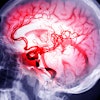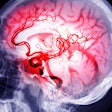Periodontitis may be a risk factor for brain damage, providing a potential treatment target for the early prevention of Alzheimer's disease, according to an American Academy of Periodontology press release dated January 9.
Furthermore, periodontitis may be linked to impaired brain function, even in individuals with normal cognition. The study recently was published in the Journal of Periodontology.
"Recent research has proposed that periodontitis is a potential risk factor for Alzheimer disease," wrote the authors, led by Dr. Wei Ye of the First Affiliated Hospital of Anhui Medical University in China.
In the study, researchers examined the oral health and brain activity of 51 participants who were divided into three groups, including 11 with no periodontitis, 14 with mild periodontitis, and 26 with moderate to severe periodontitis.
Then the researchers used one method to analyze brain activity patterns and another to assess gum health. Next, the team explored the potential connection between the two datasets, according to the press release.
The moderate-to-severe periodontitis group showed altered intranetwork and internetwork brain functional connectivity, indicating an association between periodontitis and impaired brain network function.
Similar to evidence found in previous research, the findings suggest that treating gum disease may help prevent Alzheimer's disease, even in individuals with initially normal cognition, according to the release.




















